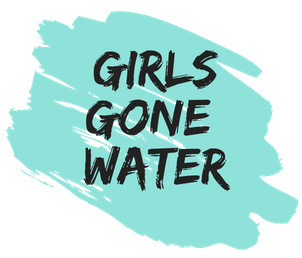Key Concepts
There are at least a quarter of a million words in the English language (not including all the fancy technical and regional vocabulary) so let’s face it – it’s not always easy to follow every discussion. In the spirit of being on the same page as you, we’ve created a rundown of some key concepts we use at Girls Gone Water that connect to our 5 Focus Areas.
Interconnection
The idea behind of our work is that humans (like you) depend on the environment around you. But here’s the kicker - the environment also depends on you! For example, you need clean drinking water to live, but the quality of that same water can be hurt by human activities that cause excess dirt or chemicals to build up or even block the flow of water. We want to help more people better understand these interconnections through the content on our platform. Hopefully, you’ll start seeing the ways water and benefits from the environment touch almost every corner of your life!
Gender
Many people get a bit confused when the conversation turns to the difference between sex and gender, so here’s a quick refresher. A person’s sex refers to their biology, such as their genes and hormones. Gender is much more complex than being a woman or a man. Gender refers to the socially-constructed identities, roles, and behaviours of people, which really just means how we perceive ourselves in our society & culture. Currently, much of our work focuses on elevating women’s perspectives, but we recognize this means we can miss other important and underrepresented points of view. As such, we welcome feedback on how we can better incorporate gender dimensions on our platform.
Research
Research can mean a lot of things (and we use the term pretty loosely), but generally it refers to the formal processes of investigation that seek to better understand something. From this process, humans create lots of new knowledge - things we didn’t know about the world are made clear. For us at GGW, the knowledge that comes from water-based research is so important to help the world better understand our water resources, as well as the views and values of the people who interact with them.
Knowledge Mobilization
The tricky part about research is that it either needs a lot of expertise to decipher it or a really good communicator to describe what it means. Enter knowledge mobilization (KMb), defined by Research Impact Canada as “all the activities and products created that help research be useful and used.” It’s basically the process of translating research findings into understandable terms, and eventually into action – which is a big focus area for water practitioners right now. The more we understand the learning coming from research, the more it can support action to protect, heal, and appreciate our water resources.
Communities of Practice
Communities of practice are groups of people who are held together by common activities shared across group members, even if they live in different places. These are different from communities of interest, which are formed by people who are just interested in a particular topic. Our aim is for Girls Gone Water to push beyond interest to foster a diverse and inclusive community of practice around actions that uphold our connections with water and the natural world.





